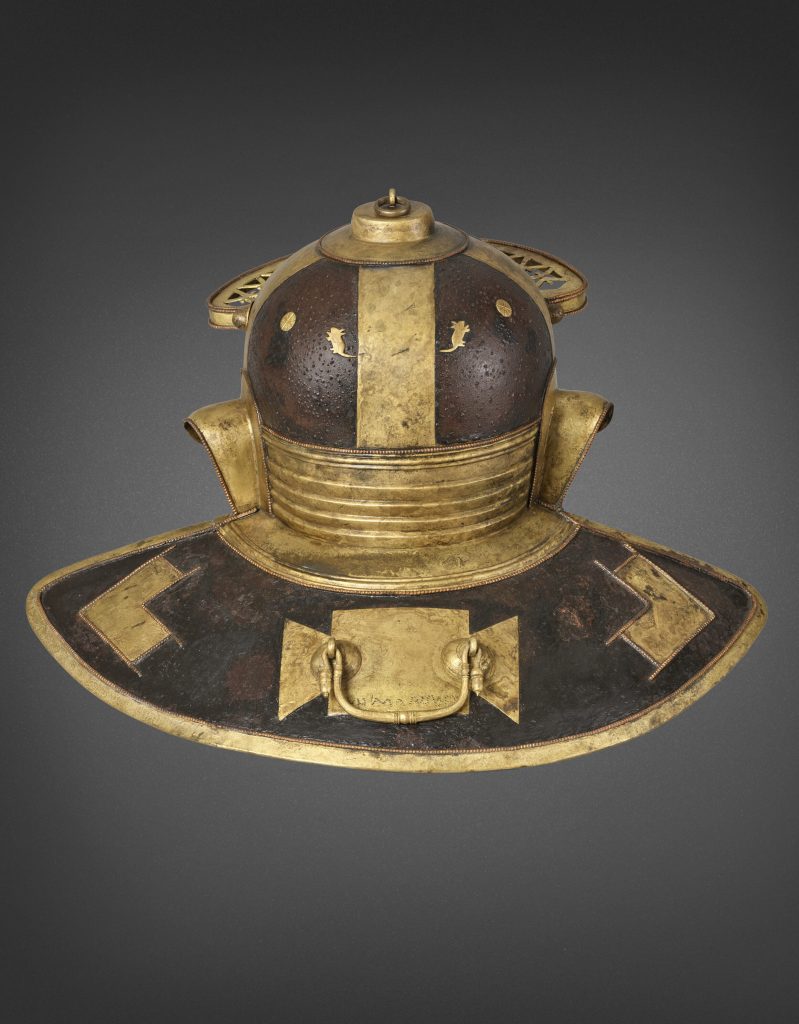The Back Room
Work of the Week: The Guttmann Mouse Helmet
A rare piece of Roman armor bearing unusual symbols sold at Christie's New York for $1.26 million.

Tiktok has anecdotally proven that men think about the Roman Empire on a strangely frequent basis, but how often does Christie’s think about it? Based on the stellar results of this recent single-owner collection with a rare focus, we wager a lot.
The top lot of the Arms and Armour from the Mougins Museum of Classical Art sale was a fascinating, if somewhat strangely decorated helmet showing two mice approaching bread that’s cut into sections. It also bore the inscription for the helmet’s original owner, Julian Mansuetas.
“Why why why? Was Mansueta’s nickname ‘mousey’?,” asked Hannah Solomon, vice president and head of the antiquities department at Christie’s. “Did he have a pet mouse?”
The symbols on the helmet, which dates to the Antonine period (ca. 125-175 A.D.), remain a mystery but the helmet itself is a rare find for other reasons. Roman soldiers often passed down their helmets, unlike the Greeks who buried soldiers with their armor as a way to show their military prowess. As a result, many Roman helmets “don’t survive in the same way,” Solomon said.
Another sign of how rare this type of material is that the last dedicated sale of ancient helmets, breastplates, and backplates at the auction house was roughly two decades ago.
This particular helmet—nicknamed the Guttmann Mouse helmet based on its rodent iconography and previous owner, Axel Guttmann, a German collector of antique weapons—was on loan to New York’s Metropolitan Museum of Art from the Mougins Museum from 2018 to 2022. It sold for $1.26 million, squarely within its $1-$1.5 million presale estimate.
Solomon noted that the helmet attracted the attention of many bidders “who don’t typically pay attention to our sales,” said Solomon. Who are these new buyers? “Men,” replied Solomon, mostly from the US and Europe.
The Mougins Museum collection sale featured 40 lots and took in a total of $6.6 million, with many lots far exceeding their estimates. Another lot, a Roman bronze breastplate dating to around 300 B.C., was quietly withdrawn from the sale last week due to possible links with Gianfranco Becchina, a Sicilian antiques dealer based in Basel who was convicted in 2011 for trafficking in looted objects.
The private French museum, founded by financier Christian Levett in 2011, boasts a trove of ancient arms and armor from across the Mediterranean world, much of which is being offloaded as Levett pivots the museum to a female artist-focused collection.
Work of the Week is excerpted from The Back Room, our lively recap funneling only the week’s must-know intel into a nimble read you’ll actually enjoy. Artnet News Pro members get exclusive access—subscribe now to receive this in your inbox every Friday.





